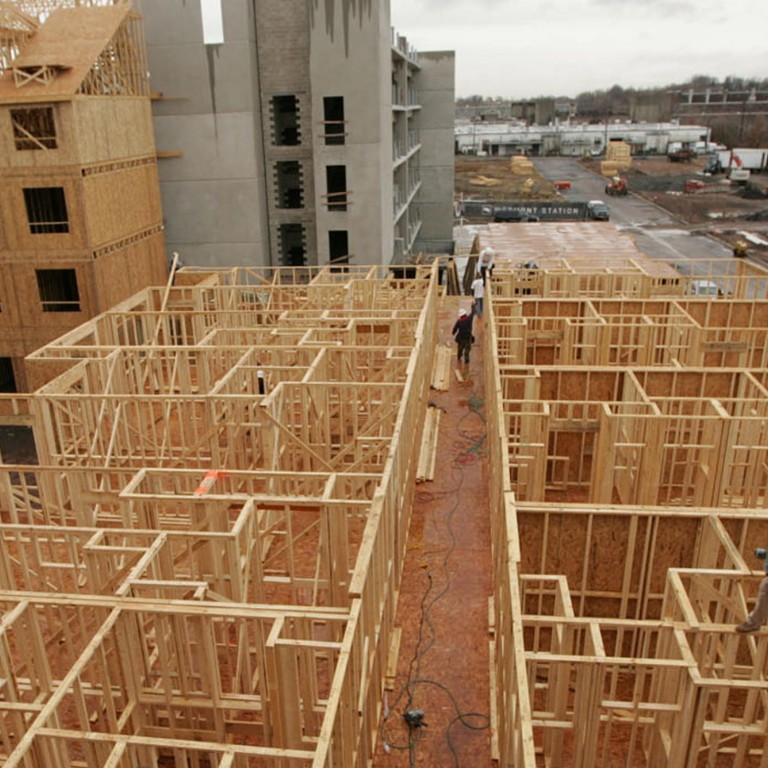
US housing industry shows signs of warming up after brutal winter
Reports from builders and lenders across the country show rising demand for housing as data points to improving economy
In Indianapolis, an open house event tends to draw 10 people on a good day.

"The realtor was dumbfounded," said Block, a vice-president of lending at Open Mortgages in Texas. "The winters were so brutal across the country that people just hunkered down and didn't do anything."
As much of the US, thaws out from a particularly frigid winter, signs are also pointing to a warmer national housing market.
Anecdotal evidence from homebuilders, mortgage lenders and brokers suggest demand in the residential housing market is picking up, potentially paving the way for a broader acceleration in an economy that has been in a slow-growth mode since pulling out of the financial crisis.
Housing is an important part of the economic fabric, contributing about 18 per cent to gross domestic product including private residential investment as well as consumption spending on housing services, according to the National Association of Home Builders.
The positive reports from across the country are supported by data from the Mortgage Bankers Association showing that the volume of home-purchase mortgage applications has climbed more than 13 per cent in the past five weeks, near its highest point in two months.
Other positive economic indicators - including better-than-expected car sales and solid private sector hiring last month - could also underpin strengthening consumer sentiment that is critical to gains in the housing market. Consumer confidence, as tracked by the Conference Board, last month reached its highest levels in more than six years.
"We also believe that almost everything is pointing in the right direction," said Rex Gordon, a vice-president of corporate land at Drees, a privately held homebuilder in Kentucky.
At Drees, which sells mostly single-family detached homes in metropolitan areas across the country, foot traffic to its model locations was up about 8 per cent in the past four weeks compared with a year ago, Gordon said.
"Yes, construction was hit real hard because of the weather, but from a sales standpoint, we've been encouraged," he said. "The vibe is good; our sales people are happy. They're all working with prospects all the time."
To be sure, some figures show that the housing market has been tepid.
Housing starts fell for the third consecutive month in February, while homebuilder sentiment ticked up but remained mostly poor last month.
Sales of existing homes have fallen 14.5 per cent in the past seven months, while sales of new homes have flattened after rising in the second half of last year.
Also, mortgage applications may be up - but they are rising from the lowest levels in 18 years.
And what rebound that may be under way is not benefiting every builder, yet. Beazer Homes USA reported last week that net new orders fell 9 per cent in the past quarter.
Still, some of the conditions that may have undercut demand are disappearing.
Aside from the poor weather dampening construction and keeping homebuyers indoors, the 16-day government shutdown in autumn last year also may have weighed on would-be buyers, because it contributed to general uncertainty about the economy, according to homebuilders.
"The fourth quarter with the government shutdown put a lot of people on the fence, so I think there was a lot of pent-up demand," said Jared Weggeland, a director of sales and marketing at Southern Homes in Florida.
At Southern Homes, which builds homes averaging about US$185,000 in Florida, January and February sales were the highest they have been for those months since 2005.
"March was even better," Weggeland said. "Demand is extremely high now."
Another factor that could energise the housing market is homebuyers seeking to capitalise on low interest rates before those rates potentially spike higher.
Take Renee Barrett, a nurse's assistant in Las Vegas, who was pre-approved for a US$249,000 mortgage. After shedding debt from a divorce, Barrett, who has a 13-year-old son, is hoping to buy a home as fast as she can, believing interest rates could easily pop back up to 7 per cent or more. A 30-year mortgage rate is currently at 4.56 per cent.
Las Vegas home prices fell by more than half during the housing bust. But the market has been recovering for a couple of years now and that recovery may be picking up pace.
Rick Piette, a mortgage lender in the city, said his typical bill for credit checks for pre-qualification letters doubled from January to February.
"I have seen an uptick in demand for the pre-approvals," Piette said. "I think the demand for the mortgages will follow too."
Rob Henger, a director of mortgage banking with FirstBank in Tennessee, said confidence was back.
"The damage to our industry and the public perception of housing and mortgage banking I think is 24 months behind us," Henger said.

